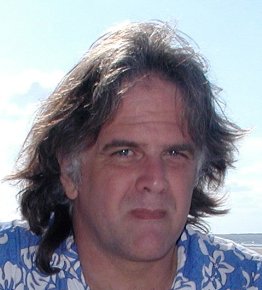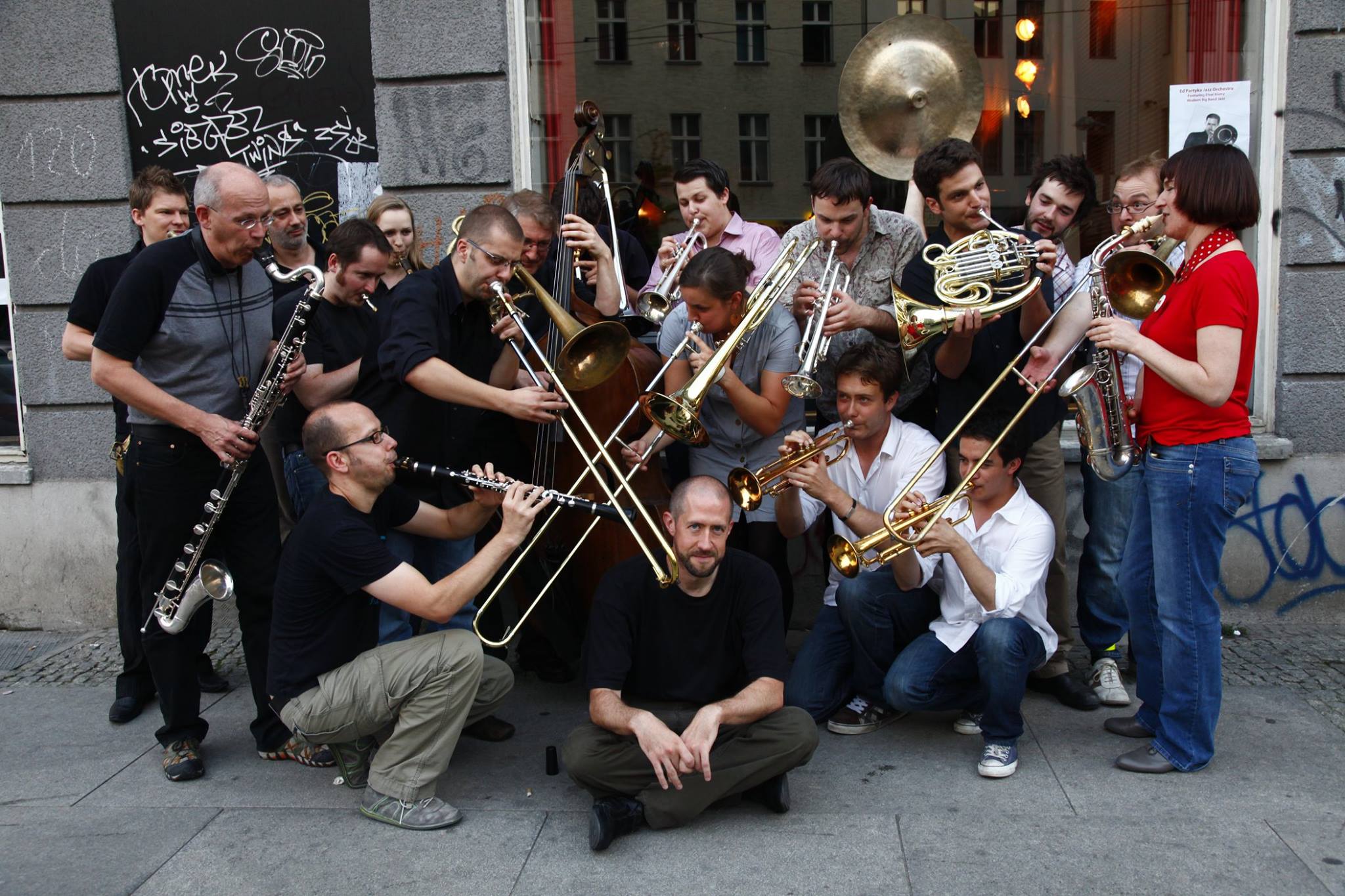You may have never met anyone who loves the big band more than Ed Partyka. Lives it. Breathes it. While started out out as a side man, he now stands in front, not only as leader but as composer and arranger. But his ear and his heart are never far from his first love, the bass trombone. Join us as we catch up with the Award-Winning American abroad in “Seven Positions”…. Enjoy!
1st position
When did you first fall in love with the bass trombone and why did you stick with it?
I started playing the trombone at about the age of 10 and my first trombone teacher, Bill Chambers, was a bass trombone player. He introduced me to the instrument and I started to play bass trombone part-time around the age of 12.
In high school I continued to play both tenor and bass trombone as well as learning to play euphonium and tuba. I started taking private lessons with John Blane, one of Chicago’s top commercial Bass Trombone/Tuba doublers, at the age of 16 and the bass trombone slowly but surely became my focus. By the time I graduated from high school I considered myself a bass trombone player. The bass trombone just felt right to me. I fell in love with the sound and range of the instrument and I also realized it was a great to not be involved in the whole ego-driven jostling for position that the tenor trombone players were constantly involved in.
2nd position
What do you look for in a horn?
I have been playing my Elkhart 62H since 1989. Even though the valve section is tight by modern standards I have never found an instrument that I like more. For me the ideal bass trombone should have a dark and warm sound that is centred and focused. The sound of the instrument should also hold together (remain centred and focused) at loud volumes and not break up. My 62h is a lot of work to play and very unforgiving if I am not in shape, but that is the price that I am willing to pay for the rich dark sound and focus/center at loud volumes. Many modern bass trombones are easier to play because they are lighter but they are too bright sounding for me and they usually lose their center of sound at loud volumes. I also feel that the 9.5 inch bell is the correct size for big band and commercial playing. As mentioned, I feel that a centred sound with good focus is very important. Bass trombones with larger bells often tend to sound more like slide euphoniums than bass trombones. I suppose that is fine for orchestral playing, but in my opinion it simply does not work for big band. The same applies to mouthpieces and lead pipes: Choose equipment that will help you get a focused and centred sound. Will a bored-out tuba mouthpiece and no lead pipe help you achieve that goal?
3rd position
Who are your inspirations?
Musical: My bass trombone inspirations: George Roberts, Kenny Shroyer, Ernie Tack, Alan Raph, Paul Faulise, Dave Taylor, Phil Teele, Erik van Lier and Tony Studd.
My composition/arranging inspirations: Bob Brookmeyer, Duke Ellington, Gil Evans, Carla Bley, Matthias Rüegg, and George Gruntz.
Non-musical: Rainer Maria Rilke, Victor Vasarely, Peter F. Hamilton, Seth MacFarlane
Stan Kenton, “Get Out of Town”, Please begin at 25’27”,
Kenny Shroyer Bass Trombone
https://www.youtube.com/watch?v=Iv6uFZVCw6k
4th position
What are your favorite bass trombone features?
The Johnny Richards arrangements of “Get Out Of Town“ and “Stella By Starlight“ for Stan Kenton’s orchestra are still my favorites.
Tbone section?
“March Of The Tadpoles“ by Toshiko Akiyoshi and all of the wonderful Kenton five part trombone ballads (“Here’s That Rainy Day“ etc…).
I also love all the trombone section moments that Ellington wrote for his first great trombone section (Joe “Tricky Sam†Nanton, Juan Tizol & Lawrence Brown) as well as the later Ellington trombone sections.
 5th position
5th position
How do standing in front of a band and arranging change the way you approach playing the instrument?
It certainly gives you a better overview and helps you to see the big picture, things that are sometimes missing if you just see the world from the trombone section. It is also beneficial to your playing because you can approach the music of other writers with a bit more empathy and understanding.
6th position
How do you conceive of and negotiate the bari-sax bass bone relationship.
As a writer: There are several combinations and options and it all depends on what I need at the moment.
As a player: In my opinion the bass trombone player has to lead and the bari player has to follow. For me it is logical because the bari play sits in front of the bass trombone and can hear and adjust much better than the bass trombone player.
It’s like lead trumpet and lead alto, the lead alto automatically adjusts to the lead trumpet, not the other way around.
https://www.youtube.com/watch?v=Bfl1wEa-PfM
7th position
What is your favorite style period in jazz?
The future.
I love music from all styles and periods and as Duke Ellington said:
“There are two kinds of music, good music and the other kind.â€
I have the great honor to teach at two excellent universities and I am extremely lucky to work with young composers/arrangers who are constantly reinventing the art form and moving the music forward, and that is what excites me the most. Even though I love so much music from the past, I can’t wait for the music of the future.
T1
Compare what you expect from an improvised bass trombone solo. Should it sound more like an upright, a sax or a tenor trombone?
A bass trombone solo should sound like a bass trombone solo, which is one of the biggest challenges still facing the bass trombone in jazz. Other than Bill Reichenbach there has been no one else, in my opinion, who has successfully been able to play convincing lines in a bebop or post-bop style on the instrument. This may be due to the physical limitations of the instrument, a lack of audience demand or some other factors. The free/outside style of bass trombone improvisation developed by Dave Taylor was an important development for the instrument and that seems to be a way for many bass trombonists to express themselves as improvisers.
c. 2018 David William Brubeck All Rights Reserved. www.davidbrubeck.com
Images courtesy of Ed Partyka
https://www.youtube.com/watch?v=RCvoTHa5dIM
Interested in more “Seven Positions†tm Interviews?
Charlie Vernon
James Markey
Chris Brubeck
Doug Yeo
Jeremy Morrow
Tom Everett
Gerry Pagano
Ben van Dijk
Randall Hawes
Denson Paul Pollard
Thomas Matta
Fred Sturm
Bill Reichenbach
Massimo Pirone
Erik Van Lier
Jennifer Wharton
Matyas Veer
Stefan Schulz


